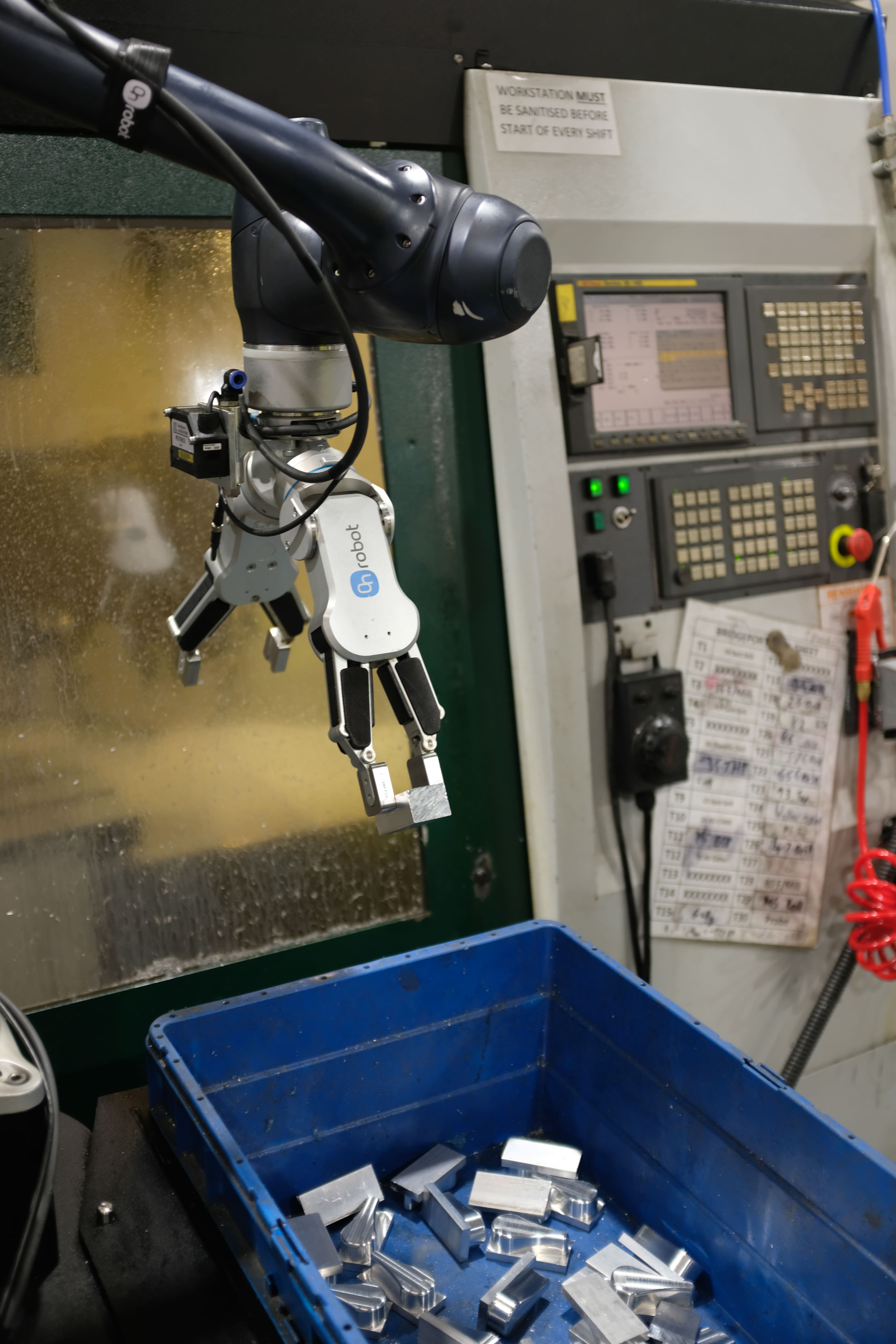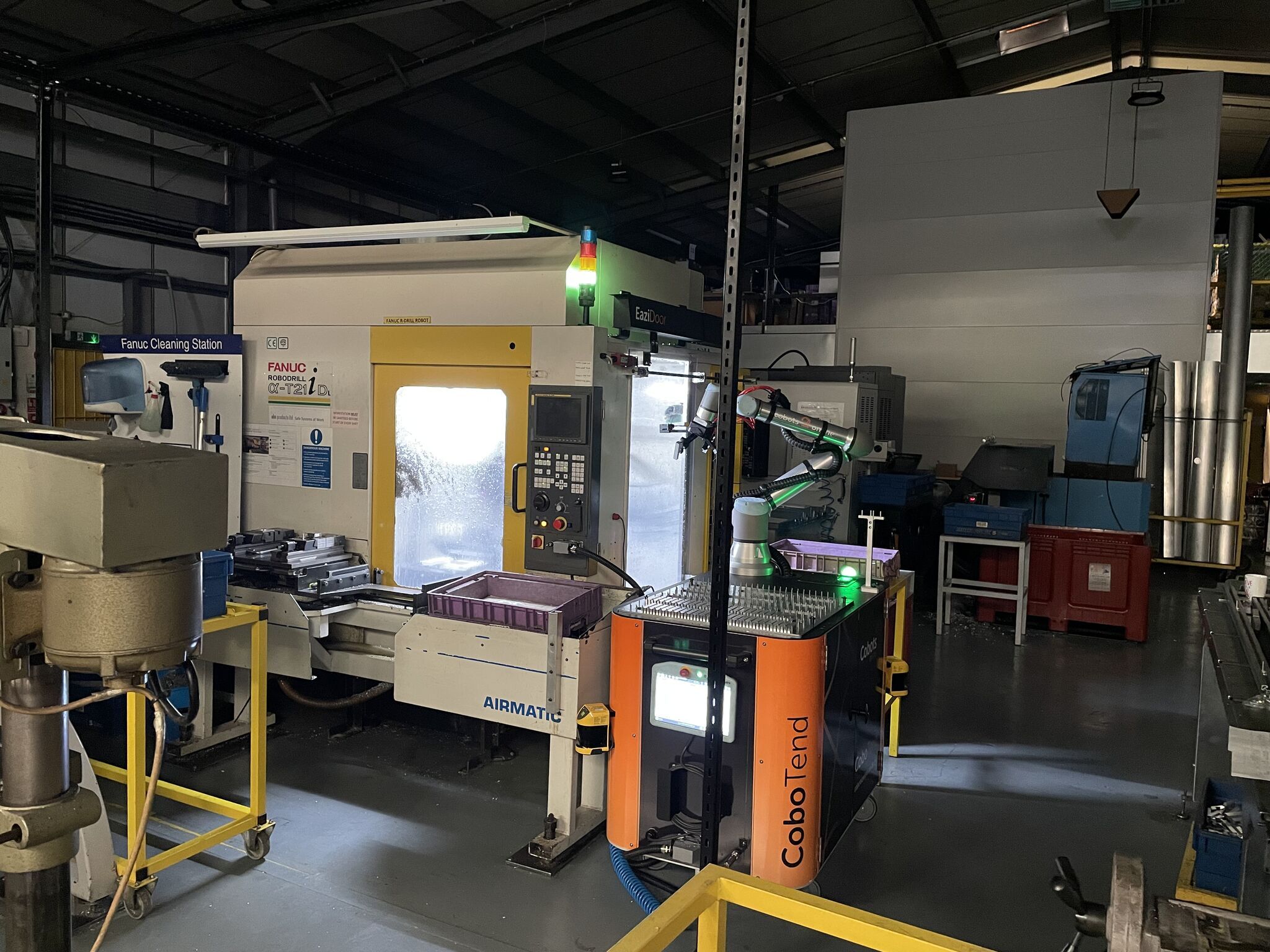Sustainable Manufacturing with Collaborative Robots
Cobots provide technological, social and environmental opportunities to a wide range of industries and processes. They're playing a critical role in transitioning towards a circular economy by facilitating more efficient and sustainable manufacturing processes.
Incorporating automated solutions can help manufacturers to reduce their environmental impact, conserve resources, and improve the sustainability of company practices.
But how exactly can cobots foster more responsible and sustainable manufacturing processes?
Reducing Wastage
Cobots are proven to reduce wastage and increase efficiencies across a wide range of industries and manufacturing processes. They provide optimum control and function for increased productivity and improved product finish quality.
Designed to be highly accurate, cobots perform complex, repetitive tasks without output quality diminishing. Manufacturing automation guarantees that materials are optimised to minimise wastage while performing tasks faster and more consistently than humans.

Reduce Energy Consumption
Reducing wastage and scrap materials can also limit energy waste. Through integrating cobots into manufacturing processes, businesses are able to improve their environmental responsibility by lowering their carbon footprint with cobots' reduced energy expenditure, and enhancing their reputation and competitiveness.
Cobots typically consume less energy than their industrial robot counterparts, and can run on relatively low energy consumption compared to humans undertaking the same task. Research has shown that 70% of energy expenditure for manufacturers is used in air conditioning and environmental protection to optimal working environments for humans. And with cobots' ability to make the shift to lights-out operations, manufacturers are able to make not only a saving on energy but also running costs.
Running cobots at 70-80% of their maximum speed and payload, can also contribute to reducing energy consumption and extending the lifespan of a collaborative robot.

Eco-Friendly Footprint
Robots traditionally have brought with them a large footprint and extra safety measures that necessitate significant changes to production layouts. Often new designs and redevelopments of workspaces are required to create space for industrial robots.
In contrast, cobots have a small footprint and following internal risk assessments, often require no safeguarding and can work safely in close proximity with humans. They are easy to redeploy between applications and eliminate costly redesigns of manufacturing facilities. Their modular, user-friendly nature allows them to adjust to the changing needs of a manufacturer and adapt seamlessly to different operations.
Sustainable Steps with Cobot Automation
As the demand for environmentally conscious manufacturing continues to rise, cobots are poised to help companies adopt more sustainable approaches. They provide a tangible solution to tackling waste reduction, as well as energy consumption and saving space within production. By increasing efficiencies and optimising processes, cobots are helping manufacturers conserve vital resources.
Contact Cobots Online’s automation experts to learn how you can grow your sustainable practices with the help of collaborative robots.
